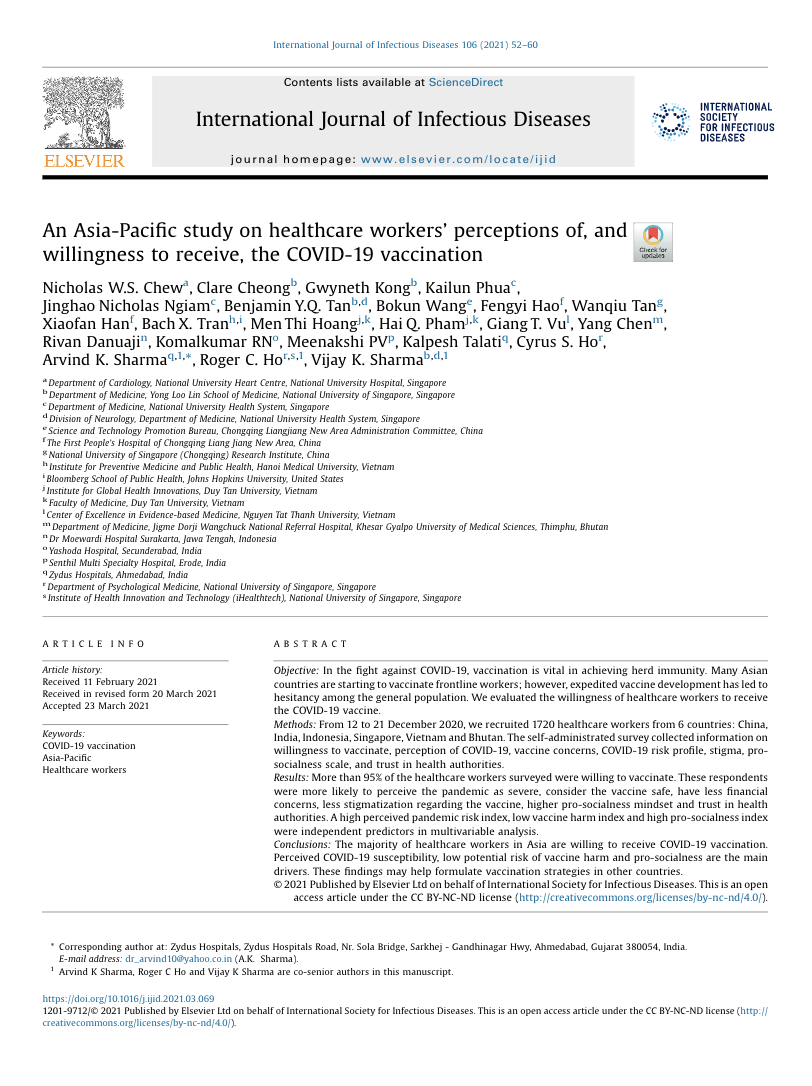An Asia-Pacific study on healthcare workers’ perceptions of, and willingness to receive, the COVID-19 vaccination
Description
Objective:
In the fight against COVID-19, vaccination is vital in achieving herd immunity. Many Asian countries are starting to vaccinate frontline workers; however, expedited vaccine development has led to hesitancy among the general population. We evaluated the willingness of healthcare workers to receive the COVID-19 vaccine.
Methods:
From 12 to 21 December 2020, we recruited 1720 healthcare workers from 6 countries: China, India, Indonesia, Singapore, Vietnam and Bhutan. The self-administrated survey collected information on willingness to vaccinate, perception of COVID-19, vaccine concerns, COVID-19 risk profile, stigma, pro-socialness scale, and trust in health authorities.
Results: More than 95% of the healthcare workers surveyed were willing to vaccinate. These respondents were more likely to perceive the pandemic as severe, consider the vaccine safe, have less financial concerns, less stigmatization regarding the vaccine, higher pro-socialness mindset and trust in health authorities. A high perceived pandemic risk index, low vaccine harm index and high pro-socialness index were independent predictors in multivariable analysis.
Conclusions:
The majority of healthcare workers in Asia are willing to receive COVID-19 vaccination. Perceived COVID-19 susceptibility, low potential risk of vaccine harm and pro-socialness are the main drivers. These findings may help formulate vaccination strategies in other countries.
Additional languages

DETAILS
Publication
Authors
Emergency
Scope
Language
Region
Keywords

